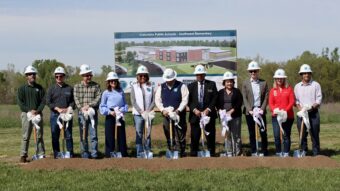Here are three indisputable truths about today’s commercial real estate environment:
1. Sales cycles are much faster than they were just a few years ago.
2. Clients are distracted and under much more pressure than they were in earlier times.
3. Clients are more hesitant to make commitments in a pandemic-driven, recessionary world.
Because we now operate in such a complicated brokerage environment, some brokers believe there’s no longer a need to develop trust. They argue that there’s not enough time to build trusting relationships, and even when you do have time, many clients prefer to keep their vendors at arm’s length.
I disagree.
True, brokers must try harder to build trust, but the end result is well worth the effort. The good news is that you don’t have to go from not knowing someone to lifelong confidant in one setting. Build trust a little bit at a time. When you first meet a prospective client, get to know them, build rapport and establish a relationship. As you get serious about doing business together, there are five ways you can develop trust. Keep doing these things over time, and you’ll develop a close friendship with a person who will become one of your all-time best clients.
Communication
Those brokers who go out of their way to communicate tend to build trust quicker and more deeply with clients. Detailed and timely communication removes suspicions and reassures clients. Tell the truth and don’t procrastinate when you need to tell prospects things they don’t want to hear. As former U.S. Secretary of State Colin Powell once said, “Bad news isn’t wine. It doesn’t improve with age.”
Another important part of communication is to say you are sorry when appropriate. It’s amazing how much an earnest and sincere apology can boost trust.
Moment of truth
At some point in any given relationship, you will encounter a moment of truth, a time in which you will be faced with an important decision. How you decide to act determines if you “pass” the moment of truth. If you do pass it, you build trust. Fail it and the relationship could be irreparably damaged.
What are some moment-of-truth examples? When it’s tempting to lie but you tell the truth. When you have a choice to do something in your interest or your client’s interest and you choose the client’s. When you go the extra mile to help clients achieve their goals. When you screw up and do everything in your power to fix the situation.
Moments of truth are opportunities. Embrace them as a chance to prove your trustworthiness and advance the relationship. Every time you pass a moment of truth, no matter how small, trust becomes at least a little deeper.
Predictability
People trust other people whose behavior is predictable. If you are the type of person who responds to challenges in a consistently professional manner, you come across as trustworthy.
The best predictor of a person’s future actions is frequent past behavior. If you consistently establish frequent past behavior that is trustworthy, it will be much easier for you to be trusted in the future.
Social proof
Robert Cialdini, the so-called “Godfather of Influence,” believes that social proof is one of the most important components of influence. You are far more likely to persuade someone’s thinking if you remember that “people follow the lead of similar others.”
Cialdini cited a study in which researchers went door-to-door collecting donations for a charity. When people answered the door, the researchers showed them a list of neighborhood residents who had already donated to the charity. The longer the donor list, the more likely prospective donors were to contribute.
In another study, New York City residents were asked to return a lost wallet to its owner. The New Yorkers were highly likely to attempt to return the wallet when they learned that another New Yorker had previously attempted to do so. But learning that someone from a foreign country had tried to return the wallet didn’t sway their decision one way or the other.
If social proof is so powerful, does it not make sense that you can more quickly build trust if respected people advocate on your behalf? Smart brokers assemble a group of past and current clients who can provide social proof and thus convey a greater sense of trustworthiness to future clients.
Rapid responsiveness
Because all of humanity’s assembled knowledge is available on the little smart phones we carry in our pockets, people have become accustomed to getting any desired information immediately. That means we have to be ultra-responsive to our prospects and current clients. It’s no longer OK to wait 24 hours to return a message. It must be done immediately.
Now that so much information is readily available, and people expect lightning-fast responses, you are now viewed as “untrustworthy” if you’re a slow communicator. It’s almost as if people think you’re incompetent or perhaps hiding something if you take too long. Speed is now equated with trust.
In closing, those who flourish in CRE brokerage for many years endure because they put a premium on people. They build trusting relationships not just for financial gain but because it’s also the right thing to do.
Omaha, Nebraska-based Jeff Beals helps CRE brokers find better prospects and close more deals. He is an award-winning author, international speaker and accomplished sales consultant. Beals is creator of the DEALMAKERS Commercial Real Estate Online Sales Training Program.




